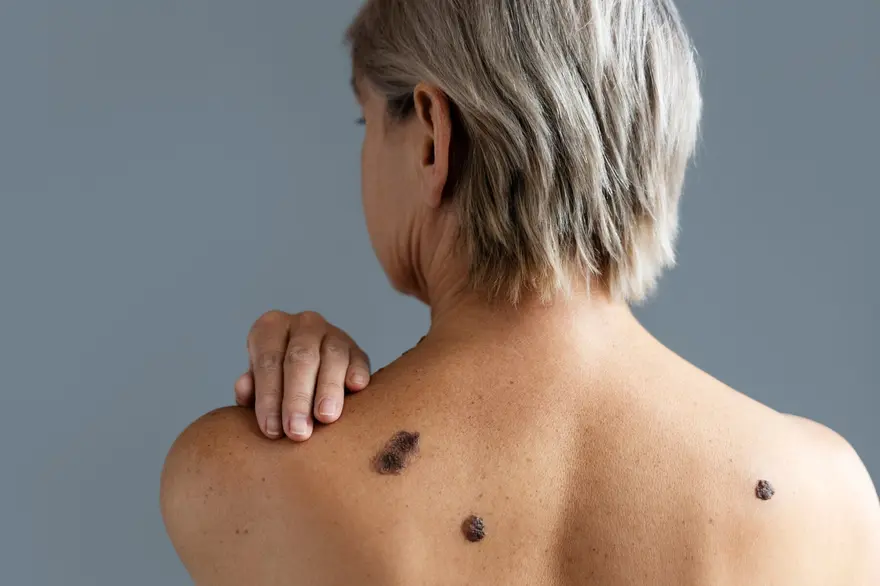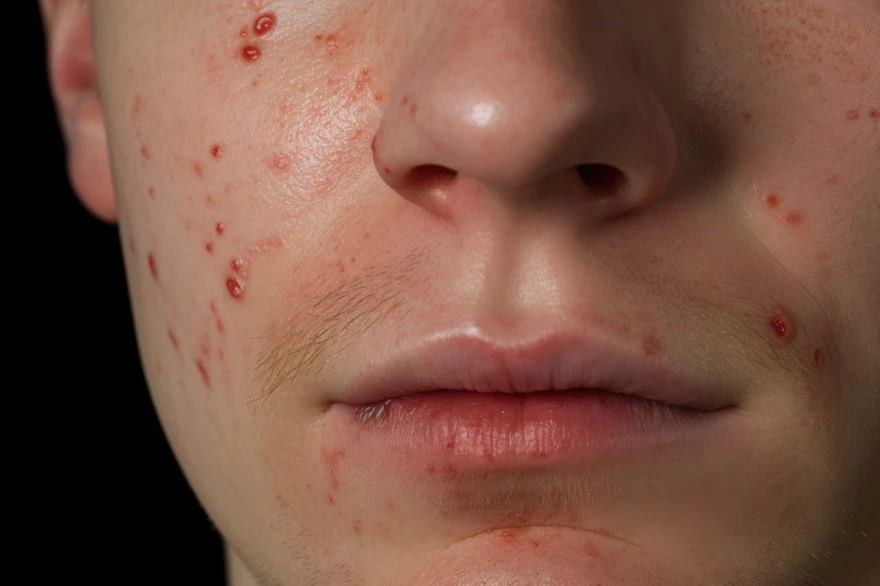Preventive Healthcare
Understanding Tourette Syndrome: Symptoms, Treatment & Causes
1132 Views
0

What is Tourette syndrome?
Tourette Syndrome (TS) is a neurological condition characterised by repetitive movements or involuntary sounds known as tics. Tourette syndrome symptoms arise as sudden twitches, movements, or vocalisations that individuals experience uncontrollably. These tics can significantly impact their daily lives.
How common is Tourette syndrome?
Tourette syndrome, a prevalent neurodevelopmental disorder, impacts approximately 1 per cent of the population around the world.
Is Tourette’s the only tic disorder?
No, Tourette syndrome is not the only tic disorder. Other recognised tic disorders are:-
- Persistent (Chronic) Motor or Vocal Tic Disorder: Involves motor or vocal tics that last over a year, but not both.
- Provisional Tic Disorder: Characterised by one or more motor or vocal tics lasting less than a year.
- Other Specified Tic Disorder: This is applied when symptoms do not meet a specific tic disorder criteria but still cause distress or impairment.
- Unspecified Tic Disorder: This is used when symptoms do not align with any specific Tic disorder or when adequate information is lacking for a precise diagnosis.
What are the symptoms of Tourette syndrome?
The primary Tourette syndrome symptom is tics, which can vary in severity from mild and hardly noticeable to frequent and conspicuous. Factors like stress, excitement, illness, or fatigue can exacerbate them. Severe tics may impact social interactions or work performance. There are two types of Tourette syndrome symptoms:
- Motor tics involve physical movements, such as arm or head jerking, blinking, facial expressions, shoulder shrugging, or mouth twitching.
- Vocal tics encompass sounds or verbalisations, including barking, throat clearing, coughing, grunting, echolalia (repeating others' words), shouting, sniffing, or swearing.
Tics can be categorised as simple, affecting only one or a few body parts like eye blinking or facial expressions, or complex Tourette syndrome symptoms like coordinated movements or vocalisations.
What causes Tourette syndrome?
Although the exact Tourette syndrome causes remain unknown, studies indicate that disruptions in neural communication within specific brain regions and imbalances in neurotransmitters, which relay nerve signals, may contribute to its onset. Tourette syndrome may also result from gene alterations inherited from parents or occurring during prenatal development.
What are the risk factors for Tourette syndrome?
Risk factors for Tourette syndrome:
- Genetic predisposition: Family history increases susceptibility
- Gender: Males are more commonly affected
- Age of onset: Symptoms typically emerge in childhood or adolescence.
- Prenatal and perinatal influences: Complications during pregnancy or childbirth may heighten the risk.
- Neurological co-morbidities: Conditions like ADHD or OCD often coexist.
- Environmental exposures: Toxins or stressors during critical brain development periods can contribute.
- Immune system involvement: Dysfunctions or abnormalities may play a role.
How is Tourette syndrome diagnosed?
Diagnosing Tourette syndrome typically involves a comprehensive assessment by a healthcare professional. While there is no specific test for Tourette syndrome, diagnosis is based on clinical evaluation and criteria established by medical guidelines, which may include:
- Medical History: The healthcare provider will review the individual's medical history, including symptoms, family history of tic disorders, and any other relevant medical conditions or medications.
- Physical Examination: A physical examination may be conducted to rule out other medical conditions that could be causing the symptoms.
- Diagnostic Criteria: Tourette syndrome is diagnosed based on specific diagnostic criteria, which typically include the presence of both motor and vocal tics, frequent tics lasting over a year, starting before the age of 18, and not being caused by medications, substances, or other medical conditions. Tics must also evolve in location, frequency, or severity.
- Exclusion of Other Conditions: The healthcare provider may order additional tests, such as blood tests or imaging studies like MRI scans, to rule out other medical conditions that could be causing the symptoms.
- Consultation with Specialists: In some cases, consultation with specialists such as neurologists or psychiatrists may be recommended to confirm the diagnosis and develop a comprehensive Tourette syndrome treatment plan.
What is the treatment for Tourette syndrome?
Tourette syndrome has no cure, but Tourette syndrome treatment aims to manage disruptive tics. The options include:
Medication:
- Dopamine-blocking medicines may control tics, although with possible side effects.
- Botulinum injections can ease specific tics, like motor and phonic.
- Attention deficit hyperactivity disorder (ADHD) meds might aid focus, but they can worsen tics in some cases.
- Central adrenergic inhibitors (adrenaline controllers) or antidepressants may help manage behavioural and emotional symptoms.
- Antiseizure meds may be effective for some.
Tourette syndrome therapies:
- Behaviour therapy, such as Cognitive Behavioural Interventions for Tics, can help monitor and manage tics.
- Psychotherapy addresses associated issues like ADHD, OCD, or anxiety.
Deep brain stimulation (DBS) is an effective Tourette syndrome therapy option for severe, treatment-resistant tics, but it is still under research to determine safety and efficacy.
How can medication help Tourette syndrome?
Medication addresses Tourette syndrome symptoms by balancing brain neurotransmitters, notably dopamine:
- Dopamine blockers (e.g., haloperidol, risperidone) reduce tics by blocking dopamine receptors.
- Stimulant ADHD meds (e.g., methylphenidate) enhance focus but may exacerbate tics.
- Central adrenergic inhibitors (e.g., clonidine) manage behavioural symptoms such as impulse control and rage.
- SSRIs (Serotonin reuptake inhibitors) like fluoxetine help with sadness, anxiety, and OCD, often linked with Tourette syndrome.
- Antiseizure meds like topiramate can also lessen tic severity.
Medication aims to improve symptoms and quality of life. It is tailored to each individual's needs and side-effect tolerance.
How can behavioural therapy help Tourette Syndrome?
Behavioural therapy, like Cognitive Behavioural Interventions for Tics (CBIT), aids Tourette syndrome management by teaching tic monitoring, habit-reversal training (HRT), and relaxation techniques to reduce tic frequency and severity. It increases awareness, offers environmental modifications, and provides education and support to empower individuals and their families in coping with Tourette syndrome challenges effectively. Combined with medication and other treatments, it forms a comprehensive approach to improve tic control and overall quality of life.
Conclusion
Tourette syndrome poses challenges for those affected, impacting daily life with its characteristic tics and associated symptoms. Lately, understanding and management of TS have improved significantly. While no cure exists, various treatments aim to relieve symptoms and enhance quality of life. Medications offer relief, although with potential side effects. While behavioural therapies empower individuals to manage tics effectively, deep brain stimulation has shown promise in severe cases.
For an accurate diagnosis, book your consultation, MRI and blood tests at Metropolis Labs and contact your doctor for immediate treatment. Schedule your tests today.
 Home Visit
Home Visit Upload
Upload














1701259759.webp)









 WhatsApp
WhatsApp